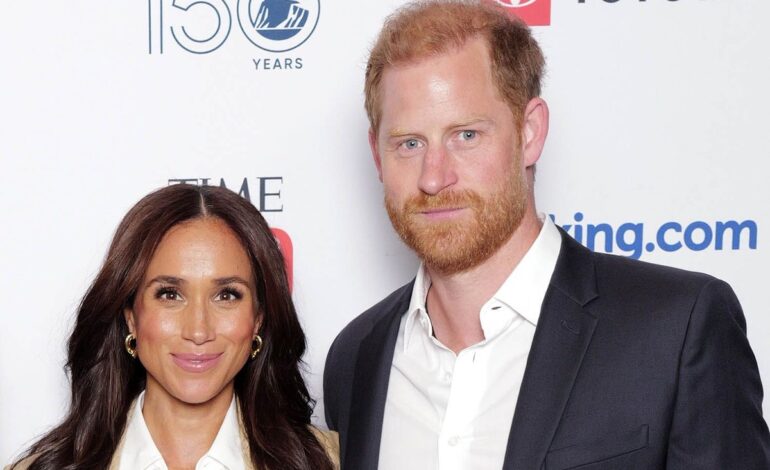Ex-Press Secretary Scolds Prince Harry: “Stop Being the Victim” — What It Means for the Sussexes

Zoe Bennett reporting. The facts matter. Here’s what we know so far.
In a pointed appearance in Channel 5’s documentary “Prince Harry: My Terrible Year,” Ailsa Anderson, who served as Queen Elizabeth II’s press secretary for 12 years, criticized Prince Harry for repeatedly framing himself as a victim and urged him to take control of his narrative. Anderson, who worked closely with the royal family between 2001 and 2013 and interacted with Harry before his departure from frontline royal duties, described the duke as “too impulsive” and admonished him to “stop being the victim and start being the hero of the piece, start writing your own script.” Her remarks are part of a broader media and public pushback that has intensified as high-profile disputes and investigations involving the Sussexes have unfolded.
Anderson’s comments land amid two overlapping controversies. First, the fallout from Harry and Meghan’s public break from royal life remains unresolved, with continued public debate about accountability, privacy, and trust. Anderson pointedly asked, “If you can’t trust your family, who can you trust?” and warned that any formal reconciliation with the royal household could prompt leaks of private information. Second, the more recent Sentebale charity probe thrust Harry into fresh scrutiny. The Charity Commission for England and Wales investigated allegations including bullying and harassment; the commission later found “no evidence” to substantiate the claims. Nonetheless, the Sentebale affair generated damaging headlines and accusations that damaged Harry’s public standing, according to royal historian Tessa Dunlop, who told the documentary that statements allegedly used against the duke had been “weaponized.”
Psychotherapist Emma Reed Turrell, also featured in the documentary, suggested that reconciliation is feasible but only with reciprocal accountability. “Stick a pin in your ego for a moment and focus not on being right, but being in a relationship,” she advised, arguing that both sides must offer forgiveness and take responsibility if rapprochement is to occur. This therapeutic framing reframes the dispute from a purely PR battle to a relational problem that requires emotional labor as well as strategic communication.
Anderson softened her critique by acknowledging Harry’s positive traits, calling him “a very warm, engaging and kind person” who appears to have “lost his way.” That balance—public censure paired with personal regard—captures a broader media pattern: persistent fascination mixed with growing fatigue. Multiple commentators in the documentary and subsequent coverage suggested the public is tiring of repeated narratives in which Harry positions himself as the wounded party while alleging systemic mistreatment.
From an analytical perspective, these developments pose concrete issues for the Sussex brand and for Harry’s future public projects. The public relations calculus is shifting: repeated victim narratives risk diminishing empathy among broader audiences, even as devoted supporters remain vocal. For philanthropic and media ventures—already under scrutiny following Sentebale—perceptions of credibility and leadership will be decisive. Reports indicate Harry is considering launching a new charity after stepping down from the Sentebale patronage in March amid the dispute; whether donors and partners will embrace a new initiative may hinge on visible accountability measures and clearer governance structures.
Finally, this documentary moment underscores an enduring truth about public figures: narrative control is fragile. Anderson’s blunt directive—be the hero, not the victim—echoes a wider call for strategic discipline, transparent governance, and emotional ownership if the Sussexes aim to mend fences and sustain their public missions. Expect more media parsing, potential outreach for reconciliation, and, crucially, an intensified focus on how Harry frames his next moves.
That wraps up today’s analysis. Stay informed, stay critical, and follow the facts.
Sources: Celebrity Storm and Channel 5 documentary “Prince Harry: My Terrible Year”, The New York Post, Charity Commission for England and Wales, Tessa Dunlop (royal historian), Emma Reed Turrell (psychotherapist)
Attribution: Creative Commons Licensed




